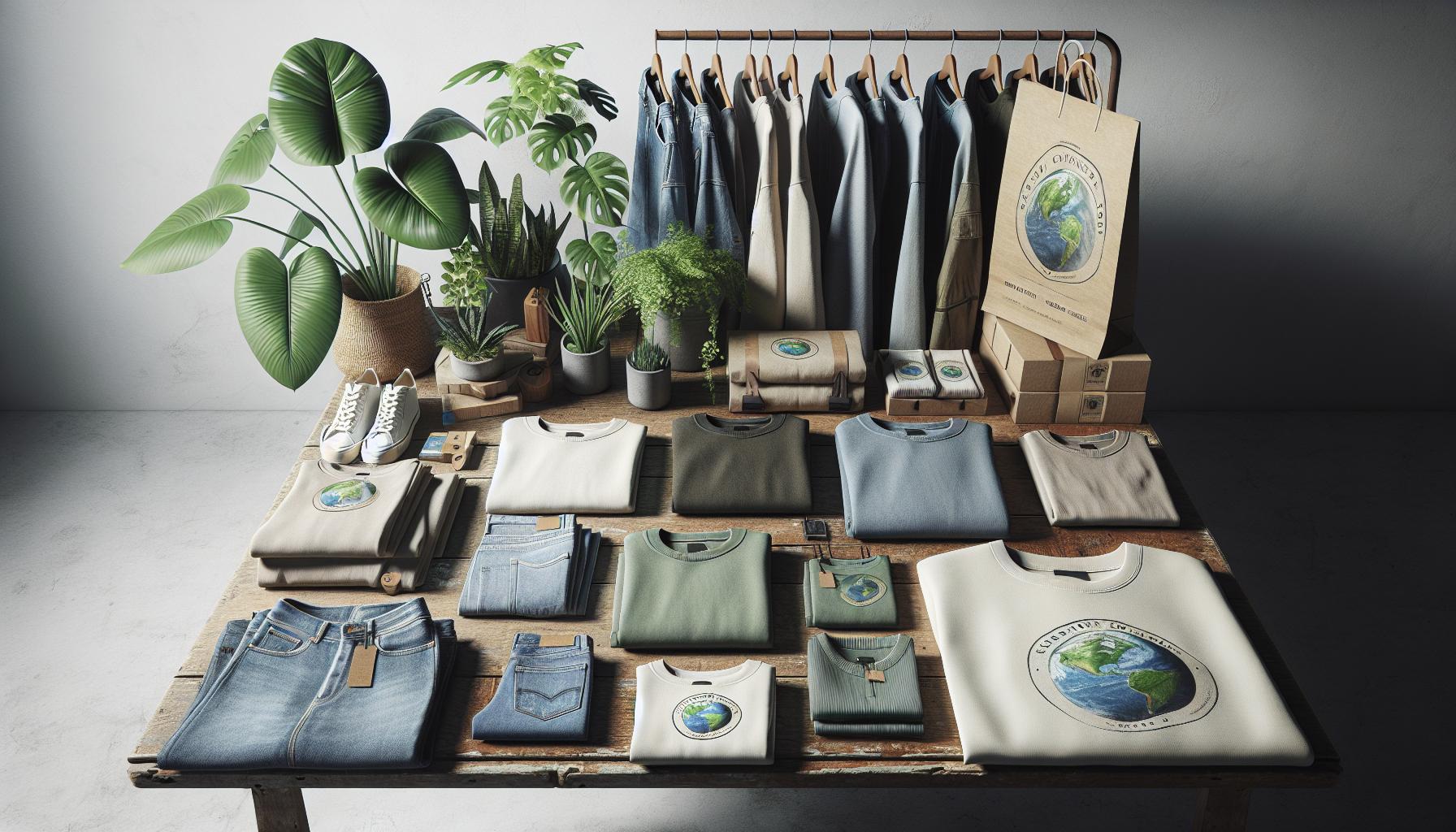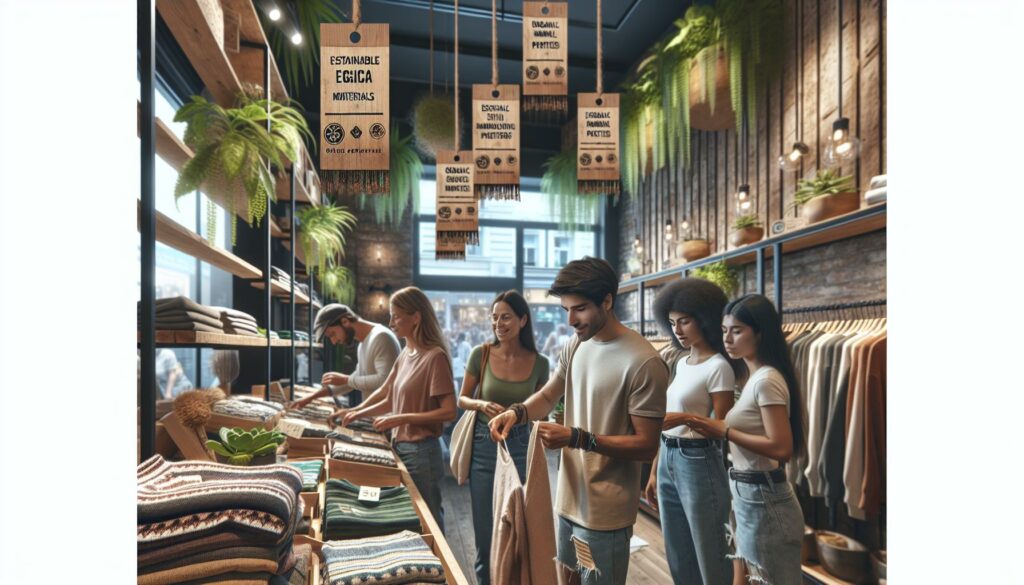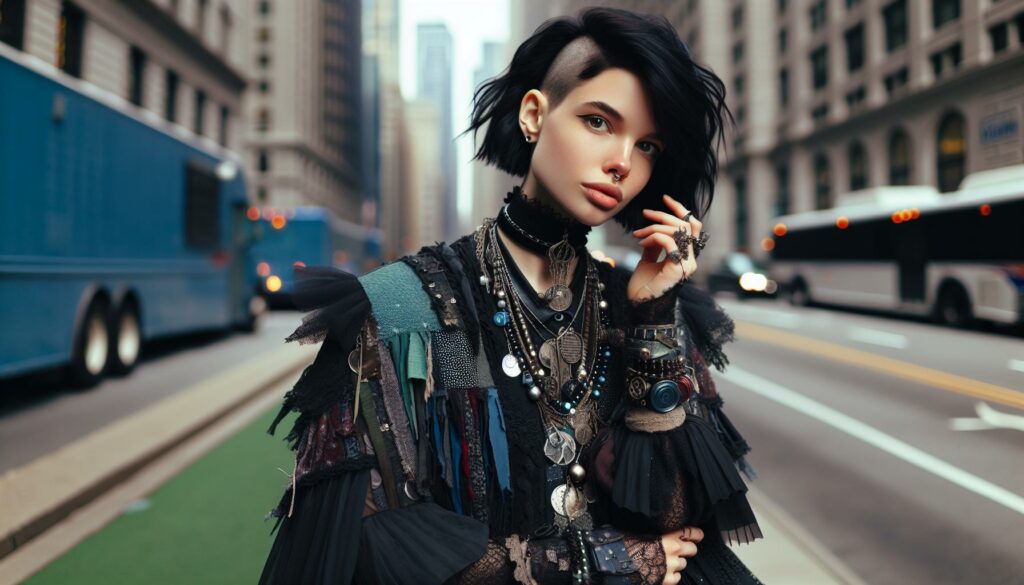Fashion’s impact on the planet has never been clearer, and as consumers, we’re increasingly seeking brands that prioritize sustainability. In the UK, a wave of innovative designers and companies is stepping up to meet this demand, blending style with eco-conscious practices. I’ve been amazed by how these brands not only focus on ethical production but also champion transparency and social responsibility.
Exploring sustainable fashion brands UK reveals a vibrant landscape that challenges the fast fashion norm. From using organic materials to implementing fair trade practices, these brands are redefining what it means to dress stylishly while caring for our planet. Join me as I dive into some of the most inspiring sustainable fashion labels that are making a difference in the industry today.
Key Takeaways
- Sustainable fashion brands UK prioritize eco-friendly materials and ethical production, significantly reducing environmental impact and promoting fair labor practices.
- Transparency is crucial, with many brands openly sharing their supply chains and sourcing methods to build trust with consumers.
- Leading sustainable brands innovate with recycled fabrics, circular economy principles, and community-focused initiatives, offering stylish options without compromising on ethics.
- Challenges such as consumer awareness and supply chain transparency persist, highlighting the need for ongoing education and investment in ethical practices.
- Future trends in sustainable fashion include innovative materials, circular fashion, digital fashion, and a commitment to sustainable manufacturing methods, catering to the rising demand for ethical consumption.
Sustainable Fashion Brands UK
Sustainable fashion focuses on creating clothing and accessories that minimize environmental impact while promoting ethical labor practices. This approach encompasses various elements, including eco-friendly materials, responsible manufacturing processes, and fair working conditions for all workers.
Sustainable fashion brands UK often use organic cotton, recycled fabrics, and natural dyes, significantly reducing pollution and waste. Brands also adopt circular economy principles, designing products for longevity, repairability, and recyclability. By encouraging consumers to buy less and invest in quality pieces, these brands combat the harmful effects of fast fashion.
Transparency plays a key role in sustainable fashion. Many labels openly share their supply chains, production methods, and sourcing practices, fostering trust with consumers. Moreover, brands engage in social responsibility initiatives, supporting local communities and highlighting fair labor practices.
Sustainable fashion represents a shift toward mindful consumption. This movement challenges the conventional fashion landscape, urging both consumers and companies to prioritize ecological integrity and ethical responsibility.
Importance of Sustainable Fashion

Sustainable fashion prioritizes eco-friendly practices and ethical standards that significantly impact the environment and society. Understanding these facets highlights the critical role sustainable brands play in shaping a responsible fashion industry.
Environmental Impact
Sustainable fashion brands in the UK aim to reduce environmental harm by utilizing eco-friendly materials and sustainable production methods. They often choose organic cotton, recycled fabrics, and innovative materials like Tencel or hemp. These sustainable options minimize resource depletion and reduce carbon footprints. Brands also adopt practices such as zero-waste designs and water-saving techniques. By emphasizing circular economy approaches, they encourage recycling and upcycling garments, contributing to reduced landfill waste. Through responsible sourcing and manufacturing, I see how these brands limit pollution and promote a healthier planet.
Social Responsibility
Social responsibility extends beyond environmental concerns; it encompasses ethical labor practices and community engagement. Many UK sustainable fashion brands ensure fair wages, safe working conditions, and transparent supply chains. They emphasize partnerships with ethical manufacturers, often supporting local artisans and communities. By promoting inclusivity and diversity in their workforce, these brands enhance social equity. Additionally, they engage in initiatives that support social causes, from education to environmental advocacy. This commitment to social responsibility demonstrates that sustainable fashion isn’t just about clothes—it’s about making positive contributions to society.
Leading Sustainable Fashion Brands in the UK

Sustainable fashion brands UK are paving the way for ethical practices while offering stylish clothing options. Here are some notable brands making waves in this sector.
Brand 1: Ethical Practices and Offerings
Brand 1 focuses on transparency and fair labor practices. It sources materials from certified suppliers and ensures that every garment is produced under fair working conditions. Their commitment to ethical production includes regular audits of factories and rigorous adherence to environmental standards. Additionally, Brand 1 offers a range of products, from casual wear to formal attire, ensuring that sustainability doesn’t compromise style.
Brand 2: Innovative Materials and Design
Brand 2 is known for using cutting-edge materials that reduce environmental impact. This brand creates garments from recycled fabrics and organic cotton, further decreasing their carbon footprint. Innovative design practices are evident in their collections, which feature timeless styles that withstand trends. Each piece is crafted with durability in mind, promoting slow fashion and discouraging wasteful consumption.
Brand 3: Community Initiatives
Brand 3 emphasizes community support through various initiatives. This brand collaborates with local artisans, empowering them to showcase their craftsmanship. By sourcing materials locally, Brand 3 reduces transportation emissions while investing directly in the communities they serve. They also engage in programs that promote inclusivity and diversity within the fashion sector, contributing to a more equitable industry.
Challenges Faced by Sustainable Fashion Brands

Sustainable fashion brands encounter various challenges that hinder their growth and impact. I’ll discuss two significant obstacles they face: consumer awareness and supply chain transparency.
Consumer Awareness
Consumer awareness about sustainable fashion remains low, despite growing interest in eco-friendly practices. Many shoppers prioritize price and trend over sustainability, leading to limited support for these brands. I often see brands combat this by educating consumers on the environmental and social benefits of their products. Initiatives like workshops, social media campaigns, and collaborations with influencers can effectively raise awareness. As a result, informed consumers are more likely to choose sustainable options, but the push for widespread understanding continues.
Supply Chain Transparency
Supply chain transparency represents another critical challenge for sustainable fashion brands. Many consumers demand to know where their products come from and how they’re made. However, achieving full supply chain transparency requires significant investment in technology and processes. I find that brands often struggle with complex supply chains, making it difficult to track materials from source to production. Some brands address this by implementing blockchain technology or engaging third-party certifications to verify ethical practices. Increased efforts in transparency can build trust and loyalty among consumers, yet navigating these complexities remains a significant hurdle.
Future Trends in Sustainable Fashion
Sustainable fashion continues evolving, reflecting greater environmental awareness and consumer demand for transparency. Brands are increasingly focusing on the following trends:
- Innovative Materials: Brands incorporate materials like lab-grown leather, hemp, and Tencel, which significantly lower environmental impact. These alternatives offer durability while reducing resource depletion.
- Circular Fashion: A shift towards circular fashion encourages recycling and upcycling. Consumers actively participate in take-back programs, where brands reclaim used products for re-manufacturing, promoting a closed-loop system.
- Digital Fashion: Virtual fashion is gaining traction, allowing consumers to buy digital outfits for avatars while minimizing waste. This trend caters to consumers interested in self-expression without the environmental costs of physical apparel.
- Transparency and Traceability: Brands increasingly highlight their supply chains, using technology like blockchain to ensure authenticity. Enhanced transparency builds consumer trust while promoting accountability in the industry.
- Sustainable Manufacturing Practices: More brands adopt zero-waste techniques and eco-friendly production methods, lowering carbon footprints. Innovations, such as 3D knitting, reduce fabric waste and energy consumption during manufacturing.
- Ethical Consumption: Conscious consumerism rises as individuals prioritize sustainability. Brands that promote ethical practices, fair wages, and community engagement attract loyal customers committed to responsible purchasing.
These trends shape the future of sustainable fashion, pushing brands toward environmentally friendly and socially responsible practices. As I observe these developments, it’s clear the sustainable fashion landscape continually evolves, responding to consumer expectations and environmental imperatives.
Ethical Industry
Sustainable fashion UK is more than just a trend; it’s a movement toward a more responsible and ethical industry. As I explore various brands, I see a commitment to transparency, innovative materials, and fair labor practices that truly inspire me.
These brands are reshaping the way we think about clothing, encouraging us to invest in quality over quantity. By supporting sustainable fashion, I feel I’m contributing to a positive change that benefits both the environment and society.
As we continue to navigate this evolving landscape, I’m excited to see how these practices will further influence our choices and help build a more sustainable future.



